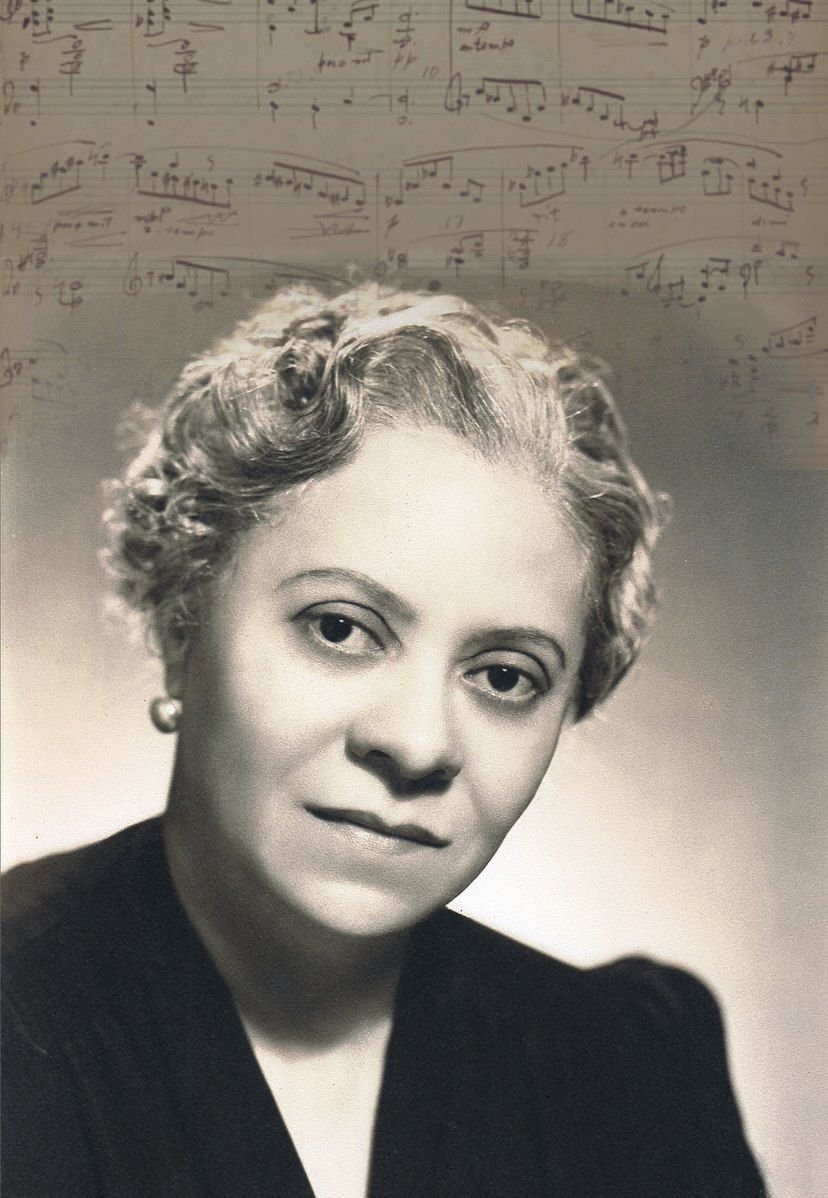Revisiting Florence Price

Courtesy of Wikimedia
Listen
On Tuesday April 17, WHRB Classical’s Henry Shreffler was joined by Nathaniel Meyer and Marquese Carter. Meyer is the conductor of Harvard’s Du Bois Orchestra, founded in 2015, and Carter is a scholar of Florence Price currently completing his DMus at Indiana University in voice. Over the course of a 45 minute conversation, Shreffler, Meyer, and Carter discussed the life and works of Florence Price, an African-American woman composer active in the mid-20th century. After her death, Price’s work was largely forgotten, until a large collection of her manuscripts was discovered by accident in 2009. The full interview is available as an audio file above, and a brief excerpt of the conversation can be found below:
On Florence Price drawing on European and African-American artistic traditions
Marquese Carter: A lot of the music I have been investigating, I’m mostly looking at art songs, she did write some concert spiritual settings, but in many of her art songs, she does not allude to, or directly quote any spirituals. I tend to think of, or speak of spirituals for the spiritual topic, in the sense of ‘how do we communicate a folk affect, and how does that occur in music?’ So some of the characteristics that evoke a spiritual topic or spiritual signifier, if you will, include using a pentatonic scale…You also have a heterogeneous sound ideal, which I think really plays into the interesting timberal excitement that Florence Price can get into. What we mean by heterogeneous sound ideal is the idea that having more instruments, and more timberal variance is actually a preferred characteristic over a homogenous sound ideal.
Another thing that comes up in spirituals is the sense of call and response. For example, there’s a wonderful Moses Hogan setting of a spiritual called “Certainly Lord,” and the caller calls out “Have you got good religion?” and the choir calls back, “Certainly, Lord.” In Western terms we call that a layered antiphonal texture, but from an Afrological perspective, we call that call and response, where the individual calls out something and in response the collective speaks back. So this play with individual versus the group is really vital to understanding a spiritual topic.
I have to admit that I’ve never heard Mississippi River… but I wouldn’t be surprised if like in many other Florence Price pieces, there are large groups of instruments that play together, and then solos that are passed back and forth, evoking that layered antiphonal, or call and response, topic. Harkening…but not always quoting a spiritual directly. To me that’s kind of fascinating, because by evoking a spiritual topic, Florence Price is able to move seamlessly from more of a Eurocentric, or a European sound ideal, but is also able to weave in her own heritage and weave in these folk idioms in a way that is unique to Florence Price.
Nathaniel Meyer: Her teacher here in Boston was George Chadwick, who was a very famous composer by his own right and one of the Boston Six, which was a group of composers that really were writing in a romantic style that was inspired heavily by Germanic, romantic music. I think that’s probably part of the reason why Florence Price learned this very lush, very beautiful sound concept that she writes, but she has her own style. The orchestra has really fallen in love with this, it’s a unique voice, it’s like nothing else that we have.
MC: The musical materials that she’s engaging with are a result of her pan-European influences as well as her love and care for her own culture. I think it’s only a natural response that those semiotic realities manifest themselves in her music…There’s one song I was talking about just the other day at a university, called “The Washerwoman.” I read that from a black feminist lens, particularly womanism, and intersectional feminism. I look at that piece, and I painted this narrative in which I talked about both the harmonic language, but also the ways in which the subject is related to the male gaze, and ways in which Florence Price directs the listener aurally and visually in reference to the poetry itself. One of the moments in that, she uses these extension chords…and I always ask people, “Does that sound jazzy to you?” and half the class says “Yeah, that sounds kind of jazzy.” Then I ask, “Does that sound like French impressionism?” and two or three people say “That sounds like Debussy to me, or Milhaud” and I think it’s so interesting that she’s able to evoke both semiotic universes at the same time, and I think the reason why is that a Eurocentric analysis of this song produces a different reading than if we actually account for that musical narrative piece, or if we account for more of an afrological aesthetic. We start to find some really interesting interplay, and some interesting harmonic ambiguity, that is not accounted for when we just look at it harmonically. But, maybe accounted for better when we think of some of these other narrative, or expressive layer approaches.
The DuBois Orchestra will be performing Price’s Mississippi River on Saturday April 21, at 8pm in the University Lutheran Church, 66 Winthrop St, Cambridge MA.
Henry Shreffler is a producer for WHRB Classical. You can hear his program “New Releases” every Wednesday night until May 1, 2018, from 8-10pm.